

KENNESAW, Ga. | Sep 25, 2025
"As a peace scholar, I am particularly interested in exploring the liminal space between peace and war, that fragile, often ambiguous space where peace efforts either consolidate or collapse."
Osebhahiemen “Ose” Okooboh, a doctoral candidate in Kennesaw State University’s Ph.D. in International Conflict Management program, returned this summer from the prestigious Summer Workshop on the Analysis of Military Operations and Strategy (SWAMOS), convened by Columbia University’s Saltzman Institute of War and Peace, and hosted at Cornell University, with a transformed perspective on peace, war, and strategic military decision-making. The experience deepened her dissertation research and added breadth to her work on risk behavior in defense and military policy.
Under the mentorship of her dissertation chair, Dr. Kristina Hook, and committee members Dr. Govind Hariharan and Dr. Amanda Reinke, Ose’s research explores how Congressional risk culture shapes national security decision-making, especially through the lens of defense acquisition choices. The Institute of Risk Management defines risk culture as “the values, beliefs, knowledge, attitudes, and understanding about risk shared by a group of people with a common purpose.” Her time at SWAMOS added nuance to her approach and gave her a deeper understanding of risk management, the paradoxical nature between war and peace, and how they are reflected in government policymaking.
“By exploring the different priorities among military services and how risk cultures within those services shape their acquisition preferences, I was better able to understand the broader ecosystem in which Congressional actors operate,” she said. For Ose, the service-focused perspective provided by the workshop highlighted how defense acquisition is not simply a function of top-down Congressional oversight but also is a dynamic negotiation space shaped by institutional preferences, doctrinal legacies, and competition between branches. All of these are influenced by how each group views and handles risk, based on their unique cultures.
Ose’s presence at SWAMOS affirmed that peace advocacy and strategic thinking are not mutually exclusive. “That tension between the two is where some of the most innovative thinking in conflict management can emerge,” she noted. The interdisciplinary nature of the workshop enhanced her work and helped her unite the concepts of high-level policy design and practical applications. “Participating alongside members of the military, from both the U.S and allied nations, was instrumental in bridging that gap,” she explained. This valuable experience pushed her to rethink her understanding on tactically feasible strategic decision-making.
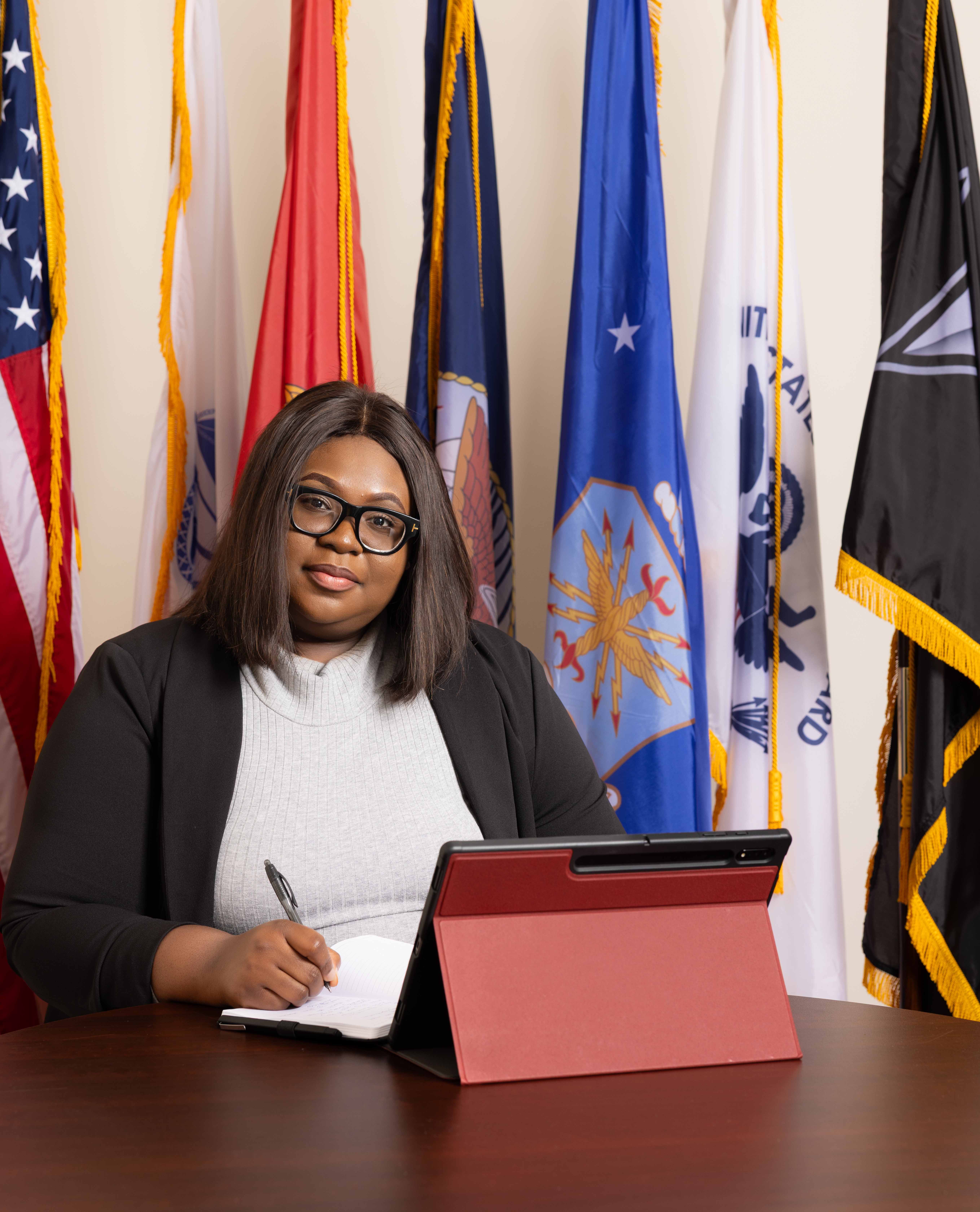
Ose now approaches peace as a risk-informed practice, shaped by her training on how perceptions of risk, mediated by varied cultural backgrounds, influence decisions. “My research interest emerged,” she said, “from a longstanding desire to understand why people behave the way they do, particularly in high-stakes settings with far-reaching consequences such as national security and defense.” By connecting leaders’ backgrounds to their political approaches and the consequences of their decisions, she examines how national responses to both war and peace are a result of socially constructed responses to risk.
In her position as a teacher of record at KSU, Ose plans to integrate these new insights into her teaching through simulation-based learning. “Ultimately, my goal as an educator is to stretch students’ notions of peace and conflict, moving them beyond idealized understandings and into a more grounded appreciation of what peace requires—politically, culturally, and logistically.”
Ose plans to graduate in Spring 2026 and is seeking a career in which she can bring ethical reflection to the heart of strategic decision-making. She aims to “…model a reflective and integrative identity, one that is not afraid to hold contradiction, guided by a moral clarity, and grounded in a rigorous understanding of real-world logistics, limits, and implications.” As she embarks on the next leg of her professional journey, Ose is ready to be a voice in defense policy innovation to ensure that peace is not just an ideal, but a principle that is tested and negotiated.
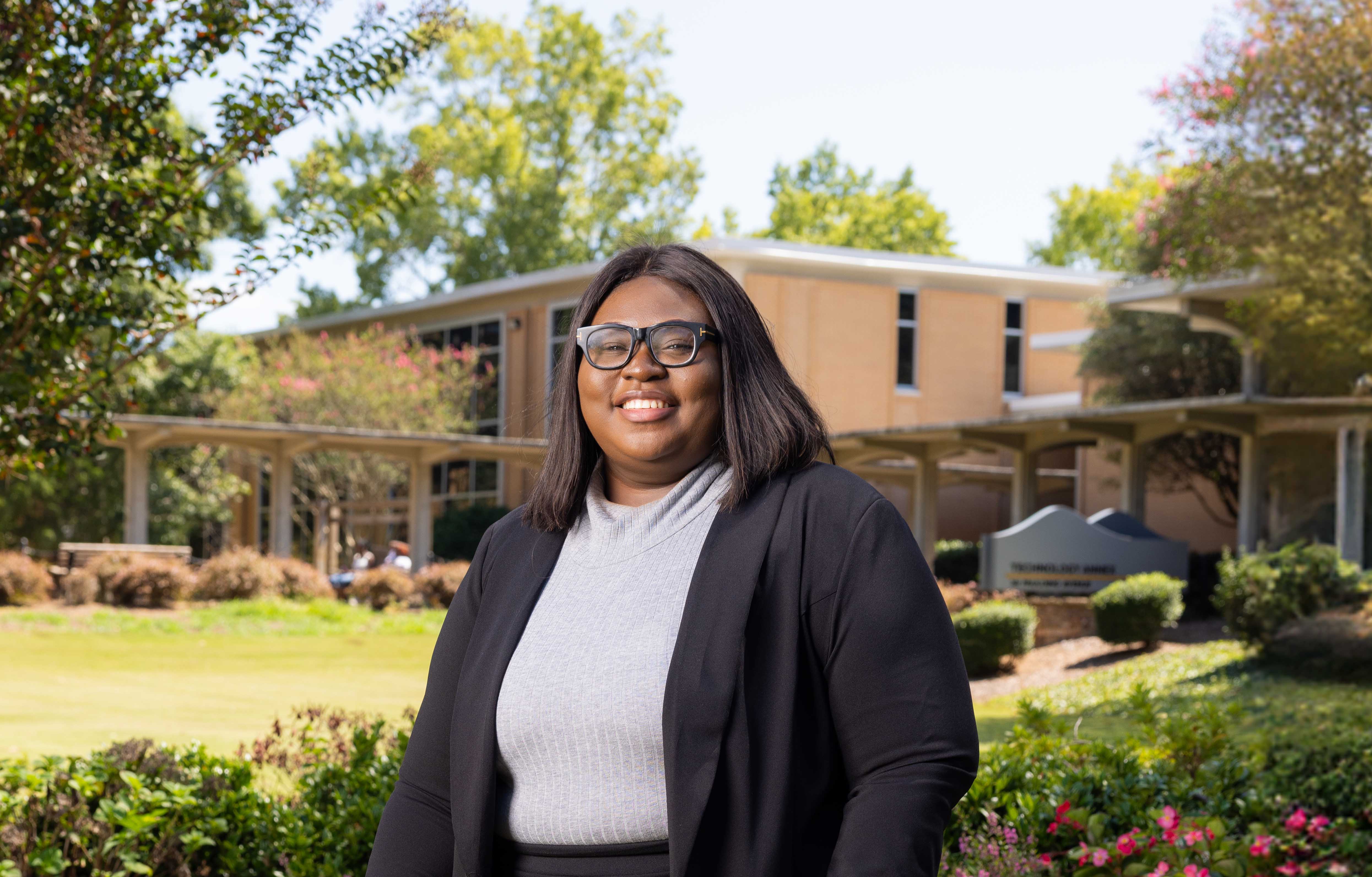
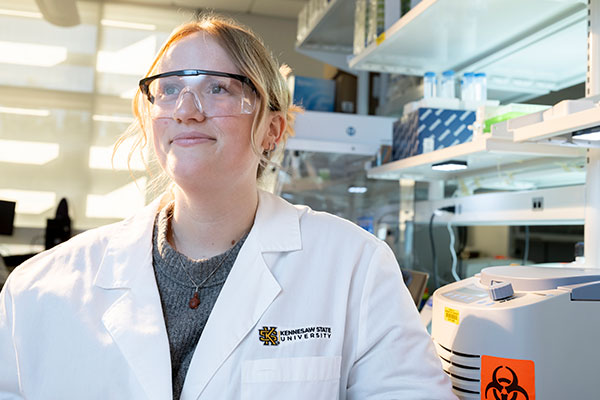
KSU Graduate Student Investigates How Human Activity Shapes Wildlife Behavior and Health
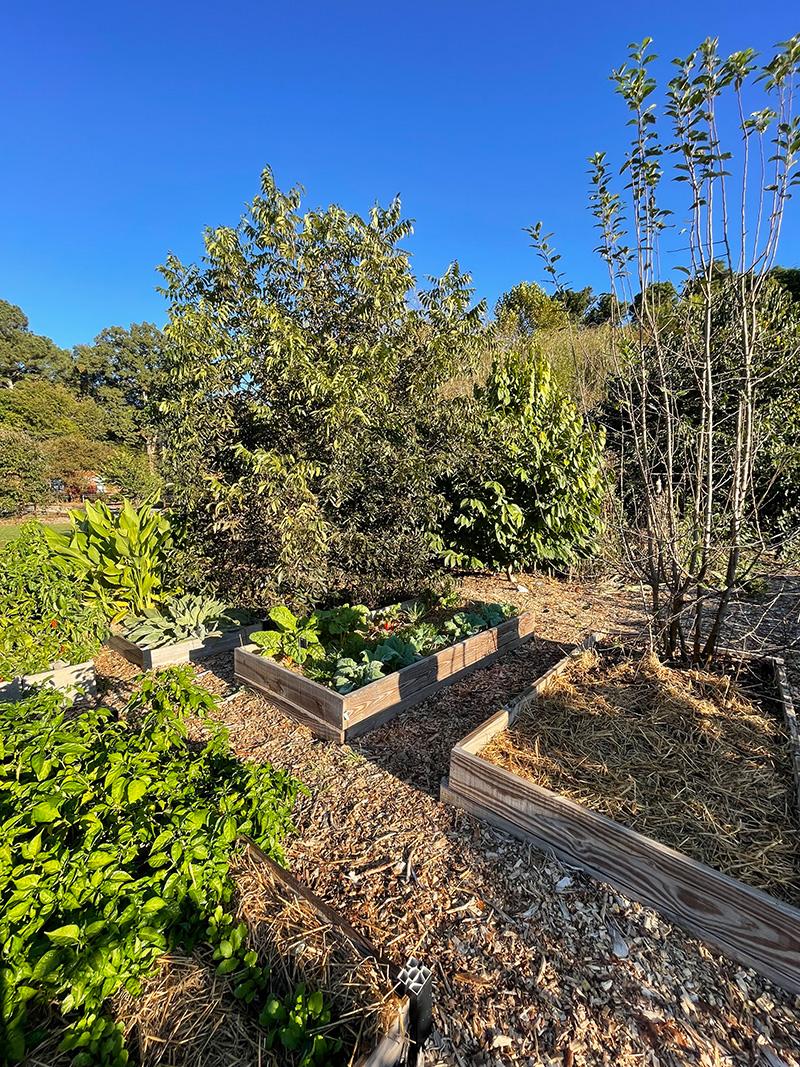
KSU Field Station Offers Real-World Experience for Graduate Students

Eight KSU Graduate Students Receive Scholarships from Graduate College
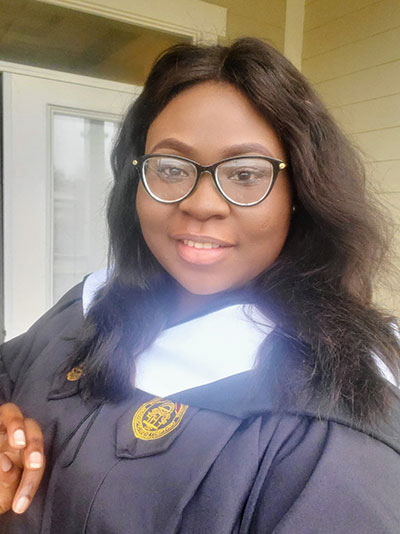
KSU Doctoral Candidate Selected for Prestigious Military Strategy Workshop at Cornell